Top 40+ Business Analyst Interview Questions And Answers
4.9 out of 5 based on 8748 votesLast updated on 16th Feb 2024 19.8K Views
- Bookmark

Prepare for a business analyst interview with insightful responses to questions on problem-solving, data analysis, and stakeholder collaboration.

Introduction
The role of a business analyst is pivotal in today's dynamic business landscape, acting as a catalyst for organizational growth and success. Tasked with bridging the gap between business needs and technological solutions, business analysts play a crucial role in identifying opportunities, streamlining processes, and driving innovation. Aspiring professionals can join a Business Analyst Course for the best skill development. The Business Analyst Certification programs follow the latest industry patterns and ensure a promising career for the professionals. With a blend of analytical prowess, strategic thinking, and effective communication skills, they navigate complex challenges to deliver actionable insights and recommendations.
This section aims to explore various business analyst questions for interviews commonly asked while hiring professionals. For aspiring professionals, the business analyst interview questions with answers can be greatly beneficial for cracking interviews.
Read through this section to get an idea of the type of questions asked and the answers generally preferred by the interviewers.
Top 20 General Business Analyst Interview Questions and Answers
Here are 20 common general interview questions for business analyst along with their answers.
- What do you understand by the role of a business analyst?
A business analyst acts as a bridge between stakeholders in an organization to understand, document, and analyse business needs and requirements to recommend solutions that enable the organization to achieve its goals.
- Can you describe your experience with requirement gathering?
Yes, in my previous roles, I have conducted interviews, workshops, and reviews of existing documentation to gather requirements. I've also employed techniques like brainstorming and prototyping to elicit requirements effectively. Moreover, interacting through the business analyst job interview questions and answers has also helped me hone my skills.
- How do you ensure the accuracy of requirements gathered from stakeholders?
I ensure accuracy by employing techniques such as validating requirements with multiple stakeholders, conducting reviews and walkthroughs, and using tools like requirement traceability matrices to link requirements to their sources.
- What methodologies are you familiar with for business analysis?
I am familiar with a range of methodologies including Waterfall, Agile, and hybrid approaches. I have experience tailoring methodologies to fit the needs of specific projects and organizations.
- How do you handle conflicting requirements from different stakeholders?
I address conflicting requirements by facilitating discussions to understand the underlying reasons for the conflicts and work towards finding compromises or alternative solutions that satisfy the needs of all stakeholders.
- Can you discuss a challenging project you worked on as a business analyst and how you overcame obstacles?
Certainly, I encountered a project where stakeholders had divergent views on the project scope. I facilitated several meetings to clarify objectives and priorities, ultimately reaching a consensus by focusing on the common goals and the overall benefit to the organization.
- How do you prioritize requirements?
I prioritize requirements based on factors such as business value, urgency, dependencies, and feasibility. I also collaborate with stakeholders to align on priorities and ensure that the most important needs are addressed first.
- What tools do you use for documentation and analysis?
I have experience using tools such as Microsoft Visio for process mapping, Microsoft Excel for data analysis, and specialized tools like JIRA or Trello for project management and requirement tracking.
- How do you ensure effective communication between technical and non-technical stakeholders?
I employ clear and concise language, avoid technical jargon when speaking with non-technical stakeholders, and use visual aids such as diagrams or mock-ups to facilitate understanding. I also encourage open communication and feedback to bridge any gaps.
- Describe a time when you had to deal with a difficult stakeholder. How did you handle it?
I once worked with a stakeholder who was resistant to change. I scheduled one-on-one meetings to understand their concerns and perspectives, and then tailored my approach to address those concerns while still moving the project forward. Moreover, going through the interview questions and answers for a business analyst helped me shape and re-shape my skills on working with difficult stakeholders.
- How do you ensure that a project stays within scope and budget?
I monitor project progress closely, regularly reviewing scope documents and tracking changes against the agreed-upon baseline. I work closely with project managers and stakeholders to address any scope creep or budget overruns promptly.
- What strategies do you use for risk management in business analysis?
I identify potential risks early in the project lifecycle, assess their impact and likelihood, and develop mitigation plans to address them. The questions and answers for business analyst interview helped me learn such strategies. I also regularly review and update risk registers to ensure that risks are managed effectively throughout the project.
- Can you explain the difference between functional and non-functional requirements?
Functional requirements describe what a system must do, such as processing orders or generating reports, while non-functional requirements describe how the system should perform, such as reliability, scalability, or security.
- How do you approach documenting business processes?
I start by mapping out the current state of processes using techniques like process flow diagrams or swim lane diagrams. Then, I identify areas for improvement and work with stakeholders to define the desired future state, documenting the changes required to achieve it.
- How do you stay updated with industry trends and best practices in business analysis?
I regularly attend professional development events such as conferences, webinars, and workshops. I also participate in online forums and communities, read industry publications, and seek out opportunities for continuous learning and certification.
- Can you discuss a time when you had to present complex findings or recommendations to senior management?
Certainly, I prepared a comprehensive presentation that included clear visuals, data analysis, and a concise summary of key findings and recommendations. I also anticipated potential questions and objections and rehearsed my presentation to ensure clarity and confidence.
- How do you handle changes to requirements mid-project?
I evaluate the impact of the changes on the project timeline, budget, and resources, and then work with stakeholders to prioritize and implement the changes effectively. I also communicate any impacts or trade-offs to the project team and stakeholders promptly.
- What do you consider the most important skills for a business analyst to possess?
Some of the most important skills for a business analyst include strong analytical and problem-solving abilities, effective communication and interpersonal skills, adaptability, attention to detail, and the ability to work collaboratively with diverse stakeholders.
- How do you measure the success of a project as a business analyst?
I measure the success of a project by evaluating whether it meets its objectives and delivers the expected benefits to the organization. This can include factors such as improved efficiency, cost savings, increased revenue, or enhanced customer satisfaction.
- What motivates you as a business analyst?
I am motivated by the opportunity to make a positive impact on organizations by helping them solve complex problems, improve processes, and achieve their strategic goals. I enjoy the challenge of analysing data and requirements, collaborating with diverse stakeholders, and delivering solutions that drive tangible results.
You May Also Read This:
How To Become Business Analyst
Top 10 Business Analyst Interview Questions and Answers for Freshers
Here are ten common business analyst fresher interview questions along with suitable answers tailored for freshers.
- Can you explain what a business analyst does?
A business analyst acts as a liaison between stakeholders to understand business needs, analyse processes, and recommend solutions to improve efficiency and achieve organizational goals. They gather requirements, document processes, and facilitate communication between technical and non-technical teams.
- What skills do you possess that make you a good fit for a business analyst role?
As a fresher, I have strong analytical skills coupled with the ability to communicate effectively. I am proficient in problem-solving and have a keen eye for detail. Additionally, my academic background in [mention relevant field or degree] has equipped me with the necessary foundational knowledge to excel in this role. I also believe that going through the business analyst fresher interview questions helped me learn various new aspects about this role.
- How do you prioritize requirements when gathering them from stakeholders?
I would prioritize requirements based on their importance to the business objectives, considering factors such as urgency, feasibility, and impact. I would also consult with stakeholders to understand their priorities and ensure alignment with the overall project goals.
- Can you provide an example of a project or task where you had to analyse data or information?
During my academic projects, I was tasked with analysing market trends and consumer behaviour using statistical methods and data analysis tools. I collected and interpreted data to identify patterns and insights, which helped in making informed decisions.
- How do you handle conflicting requirements from different stakeholders?
In such situations, I would facilitate meetings or discussions to understand the underlying reasons for the conflicts. I would strive to find common ground and negotiate compromises that align with the overarching project goals. Effective communication and diplomacy are key in resolving such conflicts. Practising the business analyst interview questions and answers for freshers has helped me acquire such skills.
- What methodologies are you familiar with for business analysis?
While I'm still learning, I have a basic understanding of methodologies such as Waterfall and Agile. I understand the importance of adapting to different project environments and am eager to learn and apply methodologies as required in real-world scenarios.
- How do you ensure that your documentation is clear and understandable for all stakeholders?
I would ensure clarity in documentation by using concise language, avoiding jargon, and providing clear examples or illustrations where necessary. I would also seek feedback from stakeholders to ensure that the documentation meets their needs and is easy to comprehend.
- Can you discuss a time when you had to work in a team to accomplish a goal or complete a project?
During my internship/academic project, I collaborated with a team to develop a [mention specific project]. We divided tasks based on each team member's strengths and skills, communicated effectively to ensure everyone was on the same page, and supported each other to overcome challenges and meet deadlines.
- How do you stay organized when managing multiple tasks or priorities?
I use tools such as to-do lists, calendars, and project management software to prioritize tasks and track progress. I break down larger tasks into smaller, manageable steps and set deadlines for each to ensure timely completion. Regularly reviewing and adjusting priorities based on deadlines and project requirements also helps me stay organized.
- What do you hope to achieve in your first year as a business analyst?
In my first year as a business analyst, I hope to gain hands-on experience in requirements gathering, data analysis, and process improvement. I aim to contribute effectively to projects, learn from experienced colleagues, and continuously improve my skills to become a valuable asset to the organization.
Top 10 Business Analyst Interview Questions and Answers for Experienced
Here are ten business analyst interview questions for experienced.
- Can you discuss a complex project you led as a business analyst?
Certainly. In my previous role, I led a project to streamline the supply chain process for our company. This involved analysing existing processes, identifying bottlenecks, and proposing solutions to enhance efficiency. I coordinated with cross-functional teams, facilitated workshops, and successfully implemented the recommended changes, resulting in a significant reduction in lead times and cost savings.
- How do you approach stakeholder management in large-scale projects?
In large-scale projects, effective stakeholder management is critical. I ensure clear communication channels are established, conduct regular meetings to keep stakeholders informed of project progress, and actively solicit feedback to address concerns. Building strong relationships based on trust and transparency is key to successful stakeholder management.
- Can you discuss a time when you had to deal with resistance to change during a project? How did you handle it?
Certainly. In a recent project, there was resistance from some team members towards adopting a new software system. To address this, I organized training sessions to familiarize them with the benefits of the new system and addressed their concerns through open dialogue. I also highlighted success stories from early adopters, which helped alleviate resistance and promote acceptance of the change.
- How do you ensure alignment between business objectives and project deliverables?
I start by thoroughly understanding the organization's strategic objectives and ensuring that project goals are aligned with these objectives. Throughout the project lifecycle, I regularly assess progress against these objectives, make adjustments as needed, and communicate any deviations to relevant stakeholders to ensure alignment is maintained.
- Can you discuss a time when you had to prioritize conflicting project requirements?
Certainly. In a previous project, there were conflicting requirements between different departments regarding the implementation of a new CRM system. To prioritize effectively, I facilitated discussions to understand the underlying needs of each department, identified common ground, and negotiated compromises where necessary. By aligning priorities with overall project goals, we were able to reach a consensus and move forward successfully.
- How do you ensure that project documentation remains accurate and up-to-date throughout the project lifecycle?
I establish robust documentation processes from the outset of the project, including version control mechanisms and regular review cycles. I assign ownership for maintaining specific documents to team members and conduct periodic audits to verify accuracy and relevance. Additionally, I ensure that documentation is updated whenever there are changes to project scope or requirements.
- What strategies do you employ for requirements traceability and management?
I utilize tools like requirement management software to trace requirements throughout the project lifecycle. I establish clear traceability matrices linking requirements to business objectives, test cases, and deliverables. Regular reviews and audits help ensure that all requirements are accounted for and properly implemented.
- How do you handle scope creep during a project?
Scope creep can negatively impact project timelines and budgets, so I address it proactively by thoroughly documenting project scope and obtaining stakeholder sign-off. If scope creep does occur, I assess the impact on project objectives, timelines, and resources. I then engage stakeholders to evaluate the necessity of proposed changes and, if approved, adjust project plans accordingly while mitigating any associated risks.
- Can you discuss your experience with data analysis and its impact on business decisions?
In previous projects, I've conducted extensive data analysis to identify trends, patterns, and insights that inform strategic business decisions. By leveraging data-driven insights, I've helped organizations optimize processes, improve customer experiences, and drive revenue growth. My proficiency in data analysis tools and techniques has been instrumental in delivering actionable recommendations to key stakeholders.
- How do you stay updated with emerging trends and best practices in the field of business analysis?
I actively participate in industry forums, attend conferences, and engage in continuous learning through workshops and online courses. I also collaborate with colleagues, share insights, and contribute to internal knowledge-sharing initiatives. By staying abreast of emerging trends and best practices, I ensure that my skills remain relevant and that I can effectively apply new methodologies and techniques in my work.
Other Related Courses:
Conclusion
To sum up, the role of a business analyst is multifaceted, requiring a blend of analytical skills, strategic thinking, and effective communication. Through adept stakeholder management, meticulous requirements gathering, and proactive problem-solving, experienced business analysts drive organizational success by aligning project deliverables with overarching business objectives. Effective training from a Business Analyst Course helps one stay abreast of emerging trends and best practices. Moreover, the Business Analyst Certification training enables one to continuously evolve their skill set to meet the dynamic demands of the industry. With a commitment to excellence and a passion for driving positive change, seasoned business analysts play a pivotal role in facilitating innovation, optimizing processes, and fostering sustainable growth within their organizations.
Subscribe For Free Demo
Free Demo for Corporate & Online Trainings.
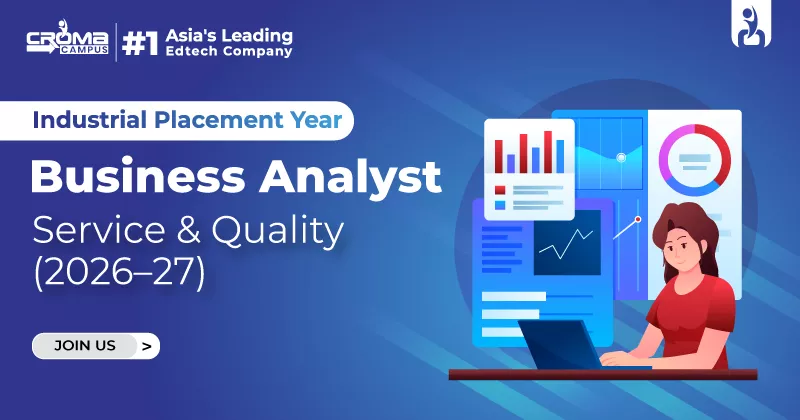
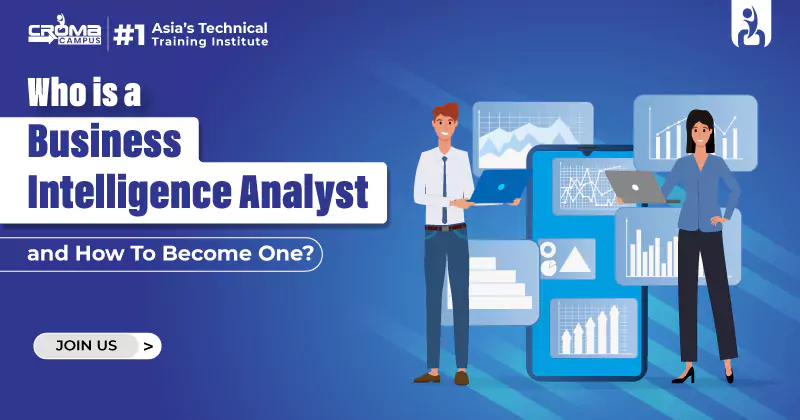
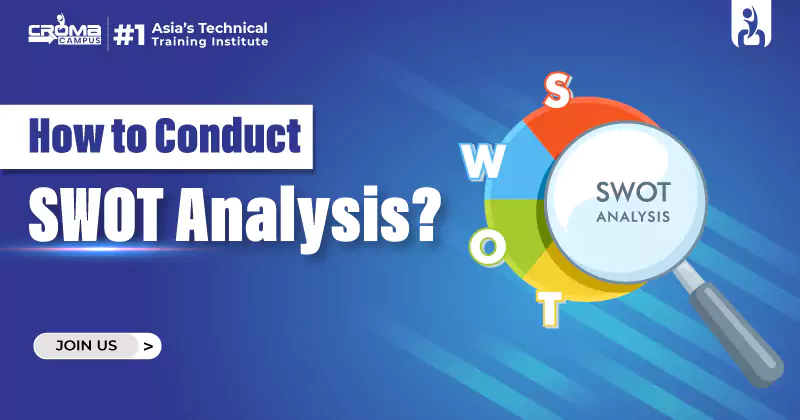
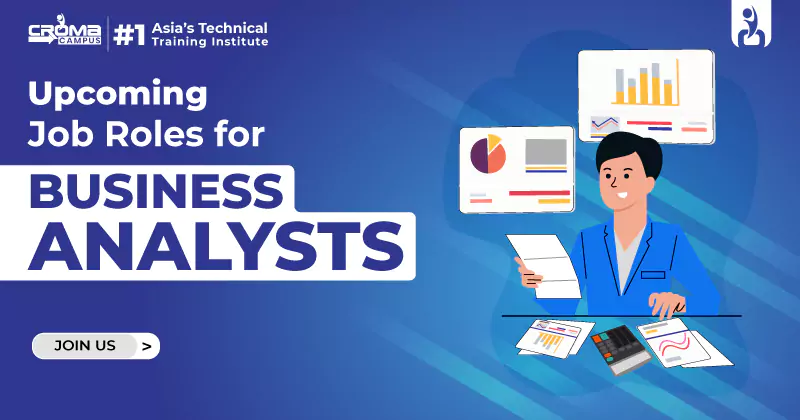
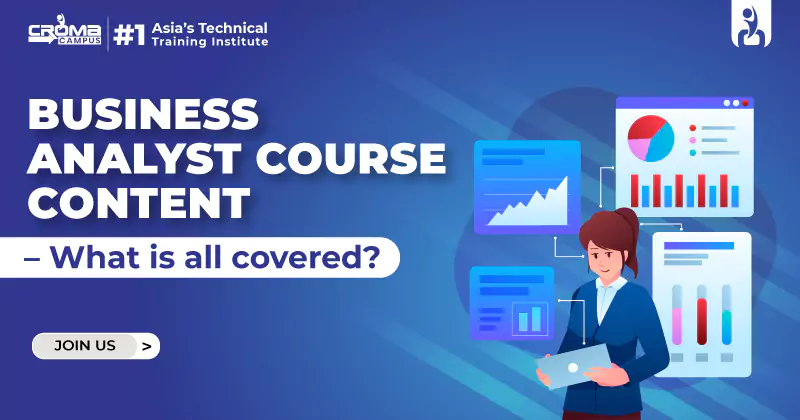
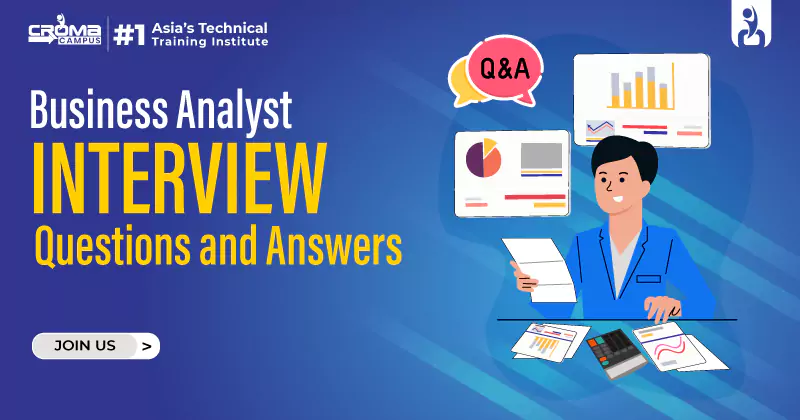
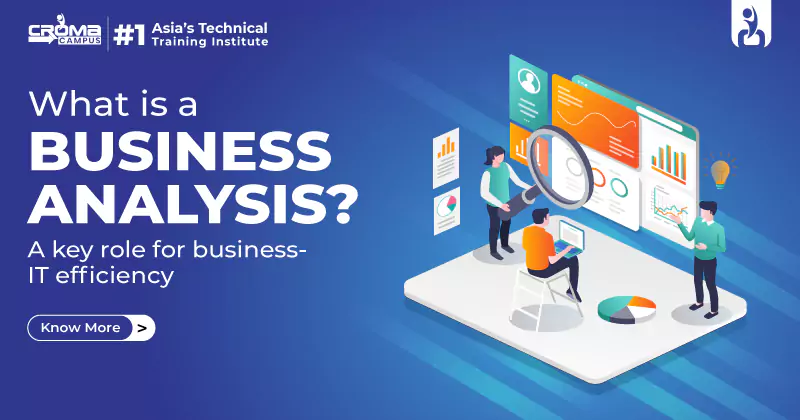
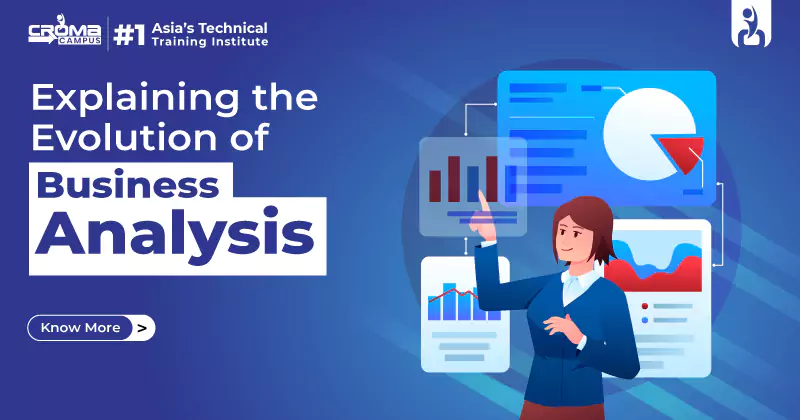


.jpg)














.webp)
.webp)

.png)















